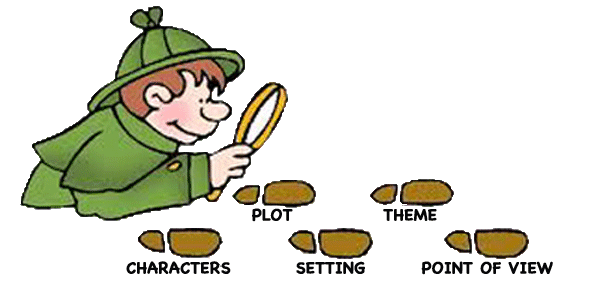Elements
|
Definitions/Descriptions - click on the underlined words for
additional information!
|
Characters
|
Characters are the people who are
involved in the story. Characters can be major or minor, and static or dynamic.
|
Plot
|
The order of events that make up a
story. The plot usually begins with an exposition, which introduces us to the characters
and background information of the story. Next comes the rising action, which involves complications that lead
to conflicts between characters. After the rising
action we reach the climax, which is a turning point in the story. After the climax there is
a falling action which leads to the resolution of the conflict.
|
Point
of View
|
This refers to who tells the story, and
how they tell it. The narrator
can tell the story from the third-person
point of view, meaning that they can tell us what the characters think
and do, but they are not part of the story. Third-person
narrators use the pronouns he, she or it. If the narrator is
telling the story from a first-person
point of view, then they are part of the story and are telling it the
way that they see it. First-person narrators use the pronoun I.
|
Setting
|
The setting of a story gives us
important information such as: 1)When the story is taking place, 2) Where the
story is taking place, and 3) What environment the story is occuring
in. It sets the mood and helps us guess what might happen in the
story.
|
Theme
|
The
central meaning or idea of the story; the moral lesson the story is
trying to teach. It is a message that gives an opinion about life,
humanity or society. Examples of theme include: love, friendship, good
vs. evil,the importance of family, crime is bad, etc.
|


